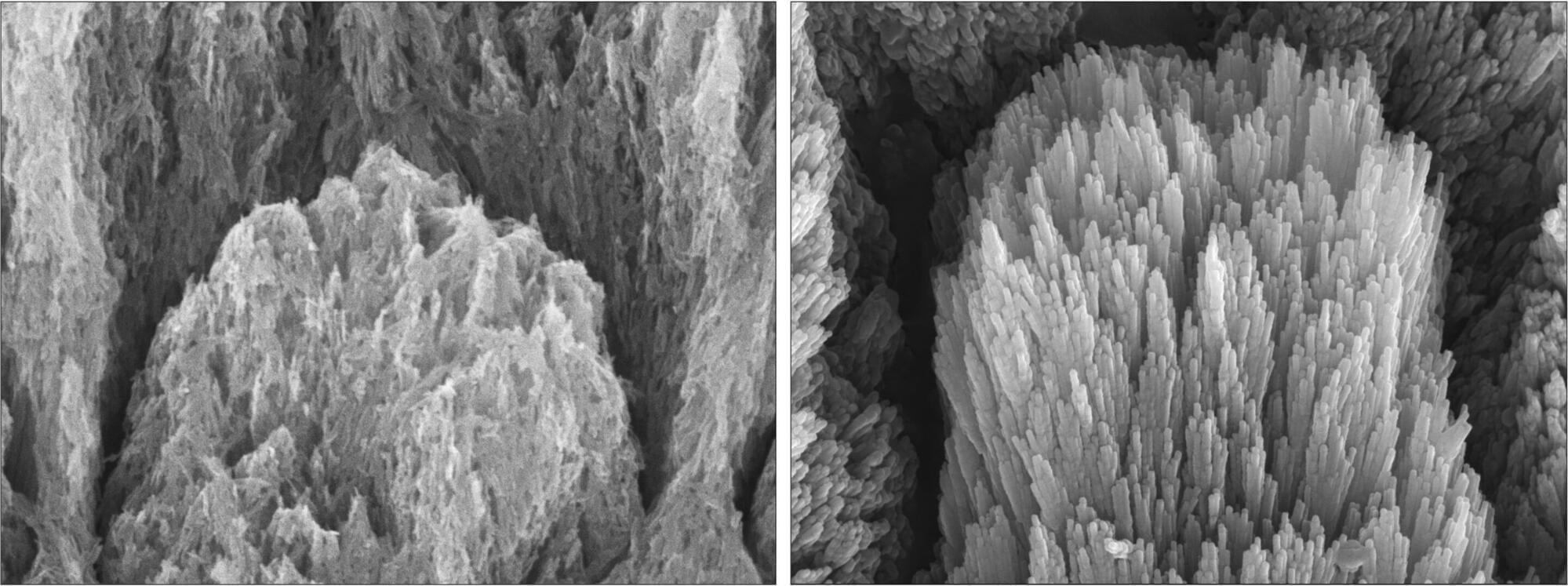Scientists from the University of Nottingham’s School of Pharmacy and Department of Chemical and Environmental Engineering, in collaboration with an international team of researchers, have developed a bio-inspired material that has the potential to regenerate demineralized or eroded enamel, strengthen healthy enamel, and prevent future decay. The findings have been published in Nature Communications.
The gel can be rapidly applied to teeth in the same way dentists currently apply standard fluoride treatments. However, this new protein-based gel is fluoride free and works by mimicking key features of the natural proteins that guide the growth of dental enamel in infancy.
When applied, the gel creates a thin and robust layer that impregnates teeth, filling holes and cracks in them. It then functions as a scaffold that takes calcium and phosphate ions from saliva and promotes the controlled growth of new mineral in a process called epitaxial mineralization. This enables the new mineral to be organized and integrated into the underlying natural tissue while recovering both the structure and properties of natural healthy enamel.
